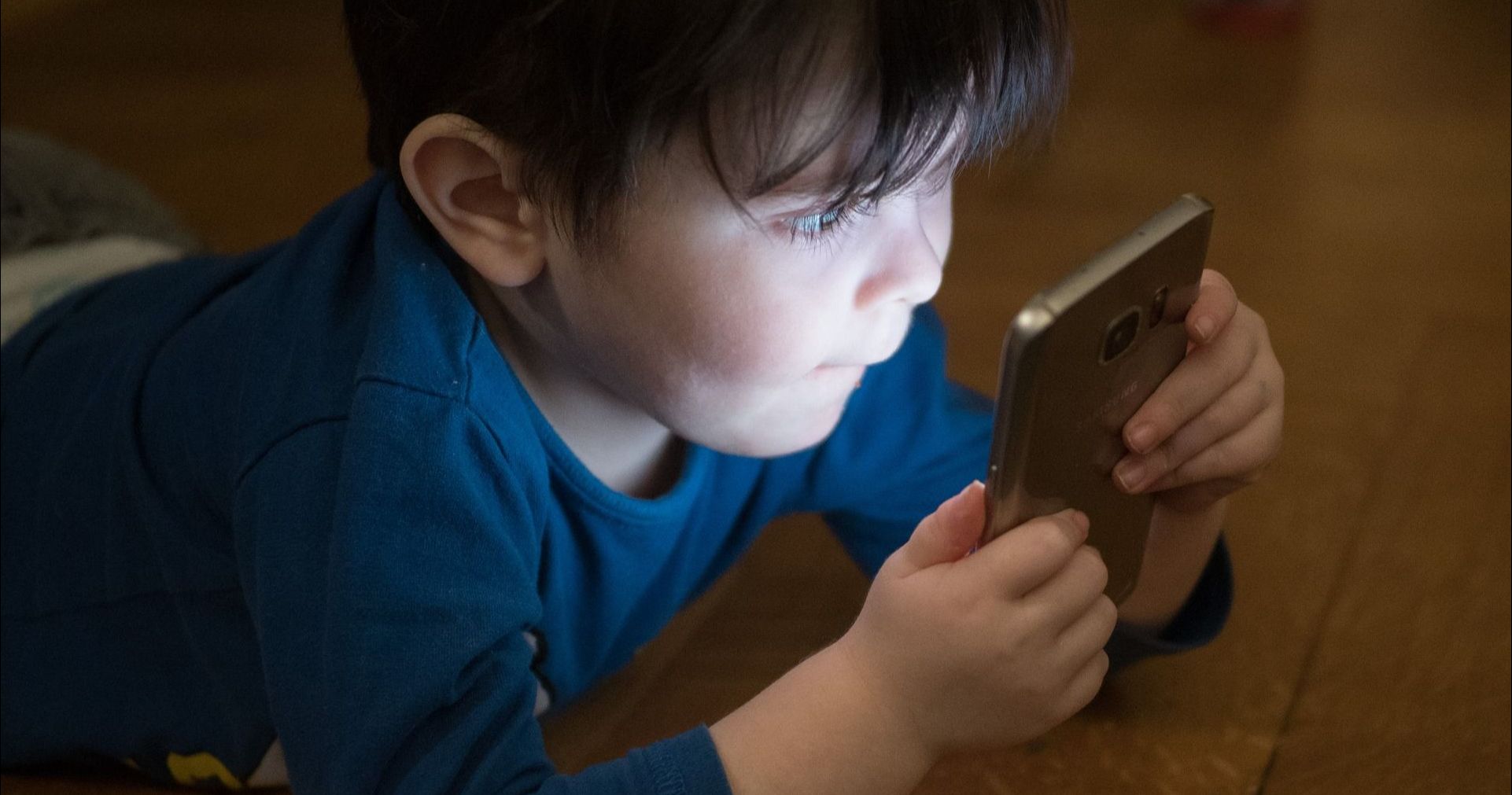Although two-thirds of parents worry that their child spends too much time on electronic devices, plenty of caregivers both inside and outside the home won't think twice about putting a toddler in front of a screen. Some will hand over their smartphones or tablets so that young ones can play with apps that are designed especially for them. But researchers and advocacy groups are warning against the dangers that can come out of this type of gameplay -- and it's probably not the type of harm you're picturing.
In the digital world, on-screen games often replace real-life play. After all, British research found that the average 10-year-old owns 238 toys, yet they play with only 12 daily. Unfortunately, the fantasy worlds depicted through electronics provides a more enticing opportunity than the ones their imaginations can come up with. That's scary enough, but it's not the subject of this most recent study.
Nearly 4.8 million kids attend an organized preschool or daycare center. In some of these facilities, an instructor may offer technological opportunities as a means of learning (or to keep kids occupied). Plenty of parents go this route too, especially when their kids are driving them crazy or they're bored on a rainy afternoon. Giving them an age appropriate phone app to play with sounds relatively harmless, but a study conducted by pediatric researchers at the University of Michigan Medical School say otherwise.
According to the team, 95% of the most popular free and paid apps geared towards children contained at least one type of advertising. These embedded ads force children to watch the apps and even manipulate them to make in-app purchases. In some apps, the advertisements took up just as much time as gameplay. In others, players were invited to tap features and "protect" or "rescue" characters by paying for extras. More than half of the apps studied showed advertisements in the middle of gameplay or between levels; at least one game shows a main character in tears when the user clicks away from the in-app purchase store. And unfortunately, the young players have no understanding of what they're being shown or that their behaviors during gameplay can result in extra charges.

The prevalence of screen time is enough of an issue for many families. Studies have found that excessive screen use can lead to sleep deprivation, obesity, and decreased brain function in kids. But at least for the four out of five American households that own a video game console, their kids won't be forced to watch manipulative advertising on that platform. (TV, of course, is another story -- but with television ads, there's no clickable option for children to buy the product). As Jenny Radesky, senior study author and development behavioral expert, explains in the report:
"With young children now using mobile devices on an average of one hour a day, it's important to understand how this type of commercial exposure may impact children's health and wellbeing... Our findings show that the early childhood app market is a wild west, with a lot of apps appearing more focused on making money than the child's play experience. This has important implications for advertising regulation, the ethics of child apps design, as well as how parents discern which children's apps are worth downloading."
After the results of the study were published, a coalition of 22 consumer and public health advocacy organizations sent a letter to the Federal Trade Commission requesting an investigation into the preschool app market and its reportedly questionable and deceptive practices. The letter sent to the FTC states that apps that are marketed as "free" actually require in-app purchases to continue gameplay, which is misleading enough. But advocates also stress that "educational" games being interrupted by forced advertisements is also deceptive -- and the game developers need to be held accountable.
A statement from the executive director of the Campaign for a Commercial-Free Childhood (CCFC) -- one of the organizations responsible for sending the letter to the FTC -- noted: "This groundbreaking study demonstrates that popular apps for preschoolers are rife with marketing that takes unfair advantage of children's developmental vulnerabilities... Disguising ads as part of game play and using cartoon characters to manipulate children into making in-app purchases is not only unethical, but illegal. We urge the FTC to take swift and decisive action to hold app developers accountable for their unfair and deceptive marketing."



